305 papers:
 DAC-2015-HahnKL #garbage collection
DAC-2015-HahnKL #garbage collection- To collect or not to collect: just-in-time garbage collection for high-performance SSDs with long lifetimes (SSH, JK, SL), p. 6.
 DATE-2015-FuLX #energy #memory management
DATE-2015-FuLX #energy #memory management- Race to idle or not: balancing the memory sleep time with DVS for energy minimization (CF, ML, CJX), pp. 13–18.
 PODS-2015-CateCST #ontology #using
PODS-2015-CateCST #ontology #using- High-Level Why-Not Explanations using Ontologies (BtC, CC, ES, WCT), pp. 31–43.
 SIGMOD-2015-PantelaI
SIGMOD-2015-PantelaI- One Loop Does Not Fit All (SP, SI), pp. 2073–2074.
 VLDB-2015-BidoitHT #named
VLDB-2015-BidoitHT #named- EFQ: Why-Not Answer Polynomials in Action (NB, MH, KT), pp. 1980–1991.
 VLDB-2015-GaoL0ZZ #query
VLDB-2015-GaoL0ZZ #query- Answering Why-not Questions on Reverse Top-k Queries (YG, QL, GC, BZ, LZ), pp. 738–749.
 VLDB-2015-NaziZT0D #network #online #performance #social
VLDB-2015-NaziZT0D #network #online #performance #social- Walk, Not Wait: Faster Sampling Over Online Social Networks (AN, ZZ, ST, NZ, GD), pp. 678–689.
 SANER-2015-AmmerlaanVZ #refactoring #why
SANER-2015-AmmerlaanVZ #refactoring #why- Old habits die hard: Why refactoring for understandability does not give immediate benefits (EA, WV, AZ), pp. 504–507.
 ICALP-v1-2015-FontesJKLLR #communication #complexity
ICALP-v1-2015-FontesJKLLR #communication #complexity- Relative Discrepancy Does not Separate Information and Communication Complexity (LF, RJ, IK, SL, ML, JR), pp. 506–516.
 CHI-2015-KnavingWFB #comprehension #design #motivation
CHI-2015-KnavingWFB #comprehension #design #motivation- Flow is Not Enough: Understanding the Needs of Advanced Amateur Runners to Design Motivation Technology (KK, PW, MF, SB), pp. 2013–2022.
 CHI-2015-Nancel0L
CHI-2015-Nancel0L- Clutching Is Not (Necessarily) the Enemy (MN, DV, EL), pp. 4199–4202.
 CHI-2015-PolitisBP #multimodal
CHI-2015-PolitisBP #multimodal- To Beep or Not to Beep?: Comparing Abstract versus Language-Based Multimodal Driver Displays (IP, SAB, FEP), pp. 3971–3980.
 CSCW-2015-BiehlAD #communication #comprehension
CSCW-2015-BiehlAD #communication #comprehension- Not Really There: Understanding Embodied Communication Affordances in Team Perception and Participation (JTB, DA, AD), pp. 1567–1575.
 CSCW-2015-FoxUR #recognition
CSCW-2015-FoxUR #recognition- Hacking Culture, Not Devices: Access and Recognition in Feminist Hackerspaces (SF, RRU, DR), pp. 56–68.
 CSCW-2015-LiuIP #comprehension #how #maintenance #quote
CSCW-2015-LiuIP #comprehension #how #maintenance #quote- “I’m Not Like My Friends”: Understanding How Children with a Chronic Illness Use Technology to Maintain Normalcy (LSL, KMI, WP), pp. 1527–1539.
 CSCW-2015-WieseMHZ #quote
CSCW-2015-WieseMHZ #quote- “You Never Call, You Never Write”: Call and SMS Logs Do Not Always Indicate Tie Strength (JW, JKM, JIH, JZ), pp. 765–774.
 CSCW-2015-ZhaoFZZD #online #social
CSCW-2015-ZhaoFZZD #online #social- To Risk or Not to Risk?: Improving Financial Risk Taking of Older Adults by Online Social Information (JCZ, WTF, HZ, SZ, HBLD), pp. 95–104.
 DUXU-DD-2015-Mesbahi #exclamation #interactive
DUXU-DD-2015-Mesbahi #exclamation #interactive- Human-Robot Interaction Ethics in Sci-Fi Movies: Ethics Are Not “There”, We Are the Ethics! (MEM), pp. 590–598.
 HCI-IT-2015-GuXCZ #using
HCI-IT-2015-GuXCZ #using- To Write not Select, a New Text Entry Method Using Joystick (ZG, XX, CC, YZ), pp. 35–43.
 HCI-IT-2015-JeongS #case study #how #smarttech #user interface #what
HCI-IT-2015-JeongS #case study #how #smarttech #user interface #what- It’s not What It Speaks, but It’s How It Speaks: A Study into Smartphone Voice-User Interfaces (VUI) (JJ, DHS), pp. 284–291.
 SCSM-2015-BeldadK #facebook #risk management
SCSM-2015-BeldadK #facebook #risk management- It’s Not About the Risks, I’m just Used to Doing It: Disclosure of Personal Information on Facebook Among Adolescent Dutch Users (ADB, RK), pp. 185–195.
 ICEIS-v1-2015-Mocker #complexity #how
ICEIS-v1-2015-Mocker #complexity #how- Complexity in the Digital Age — How can IT Help, not Hurt (MM), p. IX.
 RecSys-2015-BetzalelSR #exclamation #quote #recommendation
RecSys-2015-BetzalelSR #exclamation #quote #recommendation- “Please, Not Now!”: A Model for Timing Recommendations (NDB, BS, LR), pp. 297–300.
 ECMFA-2015-DiskinMC #category theory #imperative #model management #visual notation
ECMFA-2015-DiskinMC #category theory #imperative #model management #visual notation- A Model Management Imperative: Being Graphical Is Not Sufficient, You Have to Be Categorical (ZD, TSEM, KC), pp. 154–170.
 SAC-2015-NaqviMRPHB #artificial reality #deployment #mobile
SAC-2015-NaqviMRPHB #artificial reality #deployment #mobile- To cloud or not to cloud: a context-aware deployment perspective of augmented reality mobile applications (NZN, KM, AR, DP, DH, YB), pp. 555–562.
 ESEC-FSE-2015-BellerGPZ #developer #how #ide #why
ESEC-FSE-2015-BellerGPZ #developer #how #ide #why- When, how, and why developers (do not) test in their IDEs (MB, GG, AP, AZ), pp. 179–190.
 ICSE-v2-2015-CzerwonkaGT #bibliography #code review #debugging #how
ICSE-v2-2015-CzerwonkaGT #bibliography #code review #debugging #how- Code Reviews Do Not Find Bugs. How the Current Code Review Best Practice Slows Us Down (JC, MG, JT), pp. 27–28.
 LICS-2015-EndrullisGH #encoding
LICS-2015-EndrullisGH #encoding- Regularity Preserving but Not Reflecting Encodings (JE, CG, DH), pp. 535–546.
 DocEng-2014-HailpernVD #how #named #what
DocEng-2014-HailpernVD #how #named #what- Pagination: it’s what you say, not how long it takes to say it (JMH, NDV, MD), pp. 147–156.
 ICSME-2014-EderFHJ #question
ICSME-2014-EderFHJ #question- Which Features Do My Users (Not) Use? (SE, HF, BH, MJ), pp. 446–450.
 MSR-2014-KochharLL #classification #debugging #locality #question
MSR-2014-KochharLL #classification #debugging #locality #question- It’s not a bug, it’s a feature: does misclassification affect bug localization? (PSK, TDBL, DL), pp. 296–299.
 ICALP-v1-2014-IaconoO #why
ICALP-v1-2014-IaconoO #why- Why Some Heaps Support Constant-Amortized-Time Decrease-Key Operations, and Others Do Not (JI, ÖÖ), pp. 637–649.
 CHI-2014-RadleJMR #navigation #performance
CHI-2014-RadleJMR #navigation #performance- Bigger is not always better: display size, performance, and task load during peephole map navigation (RR, HCJ, JM, HR), pp. 4127–4136.
 DUXU-DP-2014-LinkLB #challenge #gamification #metric #smarttech
DUXU-DP-2014-LinkLB #challenge #gamification #metric #smarttech- Not So Fun? The Challenges of Applying Gamification to Smartphone Measurement (MWL, JL, KB), pp. 319–327.
 HCI-AIMT-2014-FleischmannSS #case study #comparative #interactive #modelling #process
HCI-AIMT-2014-FleischmannSS #case study #comparative #interactive #modelling #process- Tangible or Not Tangible — A Comparative Study of Interaction Types for Process Modeling Support (AF, WS, CS), pp. 544–555.
 HCI-TMT-2014-JuniorSFMC #performance
HCI-TMT-2014-JuniorSFMC #performance- Fast and Not Furious (LLLJ, FES, FAF, LFVM, JPC), pp. 219–229.
 LCT-TRE-2014-LorenzK #exclamation #online
LCT-TRE-2014-LorenzK #exclamation #online- If I Do Not Like Your Online Profile I Will Not Hire You! (BL, KK), pp. 429–439.
 KDIR-2014-SuciuICDP #learning #word
KDIR-2014-SuciuICDP #learning #word- Learning Good Opinions from Just Two Words Is Not Bad (DAS, VVI, ACC, MD, RP), pp. 233–241.
 RecSys-2014-LiuWW #what
RecSys-2014-LiuWW #what- Tell me where to go and what to do next, but do not bother me (HL, GW, GW), pp. 375–376.
 SIGIR-2014-KumarJF #detection #twitter #using
SIGIR-2014-KumarJF #detection #twitter #using- Where not to go?: detecting road hazards using twitter (AK, MJ, YF), pp. 1223–1226.
 SIGIR-2014-SavenkovA #effectiveness
SIGIR-2014-SavenkovA #effectiveness- To hint or not: exploring the effectiveness of search hints for complex informational tasks (DS, EA), pp. 1115–1118.
 ICSE-2014-InozemtsevaH #correlation #effectiveness #testing
ICSE-2014-InozemtsevaH #correlation #effectiveness #testing- Coverage is not strongly correlated with test suite effectiveness (LI, RH), pp. 435–445.
 SPLC-2014-BergerSOHLW #case study #experience #modelling #variability
SPLC-2014-BergerSOHLW #case study #experience #modelling #variability- To connect or not to connect: experiences from modeling topological variability (TB, SS, OØ, ØH, BL, AW), pp. 330–339.
 SPLC-2014-Hubaux #product line #research #what
SPLC-2014-Hubaux #product line #research #what- What research in software product line engineering is not solving in configuration (AH), p. 19.
 OSDI-2014-PillaiCAAAA #complexity #file system
OSDI-2014-PillaiCAAAA #complexity #file system- All File Systems Are Not Created Equal: On the Complexity of Crafting Crash-Consistent Applications (TSP, VC, RA, SAK, ACAD, RHAD), pp. 433–448.
 DAC-2013-FariborziCNCHLLS
DAC-2013-FariborziCNCHLLS- Relays do not leak: CMOS does (HF, FC, RN, IRC, LH, RL, TJKL, VS), p. 4.
 HT-2013-VigoH #information management
HT-2013-VigoH #information management- Challenging information foraging theory: screen reader users are not always driven by information scent (MV, SH), pp. 60–68.
 ITiCSE-2013-Kurkovsky #mobile #question #why
ITiCSE-2013-Kurkovsky #mobile #question #why- Mobile computing and robotics in one course: why not? (SK), pp. 64–69.
 ICALP-v1-2013-DemainePRSSW #assembly
ICALP-v1-2013-DemainePRSSW #assembly- The Two-Handed Tile Assembly Model Is Not Intrinsically Universal (EDD, MJP, TAR, RTS, SMS, DW), pp. 400–412.
 CSCW-2013-PanLCL #process #social #what
CSCW-2013-PanLCL #process #social #what- To answer or not: what non-qa social activities can tell (YP, LL, CYC, QL), pp. 1253–1263.
 HIMI-D-2013-MasieroTJ #parametricity
HIMI-D-2013-MasieroTJ #parametricity- Similar or Not Similar: This Is a Parameter Question (AAM, FT, PTAJ), pp. 484–493.
 OCSC-2013-HeKP #case study #community #distance #online
OCSC-2013-HeKP #case study #community #distance #online- You Are Not Alone Online: A Case Study of a Long Distance Romantic Relationship Online Community (YH, KK, JP), pp. 23–32.
 CIKM-2013-GanuM #multi #web
CIKM-2013-GanuM #multi #web- One size does not fit all: multi-granularity search of web forums (GG, AM), pp. 9–18.
 CIKM-2013-MalliarosV #graph #modelling #social
CIKM-2013-MalliarosV #graph #modelling #social- To stay or not to stay: modeling engagement dynamics in social graphs (FDM, MV), pp. 469–478.
 KDD-2013-Etzioni
KDD-2013-Etzioni- To buy or not to buy: that is the question (OE), p. 1133.
 RecSys-2013-DzyaburaT #how #recommendation
RecSys-2013-DzyaburaT #how #recommendation- Not by search alone: how recommendations complement search results (DD, AT), pp. 371–374.
 RecSys-2013-ZhangWCZ #personalisation #perspective #risk management
RecSys-2013-ZhangWCZ #personalisation #perspective #risk management- To personalize or not: a risk management perspective (WZ, JW, BC, XZ), pp. 229–236.
 REFSQ-2013-DanevaBH #architecture #case study #experience #quality #question #requirements #what
REFSQ-2013-DanevaBH #architecture #case study #experience #quality #question #requirements #what- Software Architects’ Experiences of Quality Requirements: What We Know and What We Do Not Know? (MD, LB, AH), pp. 1–17.
 REFSQ-2013-PhilippoHKCB #ambiguity #empirical #evaluation
REFSQ-2013-PhilippoHKCB #ambiguity #empirical #evaluation- Requirement Ambiguity Not as Important as Expected — Results of an Empirical Evaluation (EJP, WH, BK, MRVC, DMB), pp. 65–79.
 SAC-2013-ZhongM #analysis #empirical #game studies
SAC-2013-ZhongM #analysis #empirical #game studies- Google play is not a long tail market: an empirical analysis of app adoption on the Google play app market (NZ, FM), pp. 499–504.
 ICSE-2013-FerrucciHRS #multi #re-engineering
ICSE-2013-FerrucciHRS #multi #re-engineering- Not going to take this anymore: multi-objective overtime planning for software engineering projects (FF, MH, JR, FS), pp. 462–471.
 ICSE-2013-HerzigJZ #classification #debugging #how #predict
ICSE-2013-HerzigJZ #classification #debugging #how #predict- It’s not a bug, it’s a feature: how misclassification impacts bug prediction (KH, SJ, AZ), pp. 392–401.
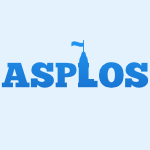 ASPLOS-2013-KangW #approach #hardware
ASPLOS-2013-KangW #approach #hardware- To hardware prefetch or not to prefetch?: a virtualized environment study and core binding approach (HK, JLW), pp. 357–368.
 SOSP-2013-XuZHZSYZP
SOSP-2013-XuZHZSYZP- Do not blame users for misconfigurations (TX, JZ, PH, JZ, TS, DY, YZ, SP), pp. 244–259.
 DAC-2012-JoubertDBTH #3d #exclamation #problem
DAC-2012-JoubertDBTH #3d #exclamation #problem- Capacitance of TSVs in 3-D stacked chips a problem?: not for neuromorphic systems! (AJ, MD, BB, OT, RH), pp. 1264–1265.
 DAC-2012-KirschP #problem
DAC-2012-KirschP #problem- Incorrect systems: it’s not the problem, it’s the solution (CMK, HP), pp. 913–917.
 DAC-2012-SeversonYD #performance #question #reduction
DAC-2012-SeversonYD #performance #question #reduction- Not so fast my friend: is near-threshold computing the answer for power reduction of wireless devices? (MS, KY, YD), pp. 1164–1166.
 SIGMOD-2012-ZukowskiB #challenge #research
SIGMOD-2012-ZukowskiB #challenge #research- From x100 to vectorwise: opportunities, challenges and things most researchers do not think about (MZ, PAB), pp. 861–862.
 VLDB-2012-PattersonENAA #concurrent #multi
VLDB-2012-PattersonENAA #concurrent #multi- Serializability, not Serial: Concurrency Control and Availability in Multi-Datacenter Datastores (SP, AJE, FN, DA, AEA), pp. 1459–1470.
 ITiCSE-2012-DennyLT #fault #syntax
ITiCSE-2012-DennyLT #fault #syntax- All syntax errors are not equal (PD, ALR, EDT), pp. 75–80.
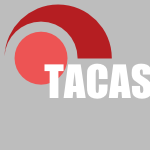 TACAS-2012-Hermanns #grid #modelling
TACAS-2012-Hermanns #grid #modelling- Quantitative Models for a Not So Dumb Grid (HH), p. 1.
 CSMR-2012-BernardiCLPD #communication #debugging #developer #eclipse
CSMR-2012-BernardiCLPD #communication #debugging #developer #eclipse- Do Developers Introduce Bugs When They Do Not Communicate? The Case of Eclipse and Mozilla (MLB, GC, GADL, MDP, DD), pp. 139–148.
 LATA-2012-MiasnikovS #automation #graph
LATA-2012-MiasnikovS #automation #graph- Cayley Graph Automatic Groups Are Not Necessarily Cayley Graph Biautomatic (AM, ZS), pp. 401–407.
 CHI-2012-CoxCSC #challenge #experience #game studies
CHI-2012-CoxCSC #challenge #experience #game studies- Not doing but thinking: the role of challenge in the gaming experience (ALC, PAC, PS, MC), pp. 79–88.
 CHI-2012-MarkVC #email #empirical #quote
CHI-2012-MarkVC #email #empirical #quote- “A pace not dictated by electrons”: an empirical study of work without email (GM, SV, AC), pp. 555–564.
 CHI-2012-ZhuHL #comprehension #online #social
CHI-2012-ZhuHL #comprehension #online #social- To switch or not to switch: understanding social influence in online choices (HZ, BAH, YL), pp. 2257–2266.
 CSCW-2012-EiriksdottirKCMMXP #comprehension #game studies #health #multi #pervasive
CSCW-2012-EiriksdottirKCMMXP #comprehension #game studies #health #multi #pervasive- This is not a one-horse race: understanding player types in multiplayer pervasive health games for youth (EE, DK, RC, EDM, ADM, YX, ESP), pp. 843–852.
 CSCW-2012-LeeTH #coordination #named
CSCW-2012-LeeTH #coordination #named- Micro-coordination: because we did not already learn everything we need to know about working with others in kindergarten (JSL, DGT, SH), pp. 1135–1144.
 CSCW-2012-SchroterADK #communication
CSCW-2012-SchroterADK #communication- To talk or not to talk: factors that influence communication around changesets (AS, JA, DD, IK), pp. 1317–1326.
 ICML-2012-MannorMX #nondeterminism #robust
ICML-2012-MannorMX #nondeterminism #robust- Lightning Does Not Strike Twice: Robust MDPs with Coupled Uncertainty (SM, OM, HX), p. 62.
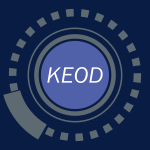 KEOD-2012-Exman #concept
KEOD-2012-Exman #concept- A Non-concept is Not a ¬Concept (IE), pp. 401–404.
 SIGIR-2012-ArroyueloGMOS #ranking #trade-off
SIGIR-2012-ArroyueloGMOS #ranking #trade-off- To index or not to index: time-space trade-offs in search engines with positional ranking functions (DA, SG, MM, MO, TS), pp. 255–264.
 PLATEAU-2012-MeyerovichR12a #bibliography #case study #developer #experience #how #repository
PLATEAU-2012-MeyerovichR12a #bibliography #case study #developer #experience #how #repository- How not to survey developers and repositories: experiences analyzing language adoption (LAM, ASR), pp. 7–16.
 SAC-2012-NunesARTCS #analysis #data type
SAC-2012-NunesARTCS #analysis #data type- To be or not to be real: fractal analysis of data streams from a regional climate change model (SAN, AMHdÁ, LASR, AJMT, PPC, EPMdS), pp. 831–832.
 ICSE-2012-Johnson #case study #question #static analysis #tool support #using #why
ICSE-2012-Johnson #case study #question #static analysis #tool support #using #why- A study on improving static analysis tools: Why are we not using them? (BJ), pp. 1607–1609.
 QoSA-ISARCS-2011-Stal #architecture
QoSA-ISARCS-2011-Stal #architecture- Good is not good enough: evaluating and improving software architecture (MS), pp. 73–74.
 DAC-2011-TamB #question
DAC-2011-TamB #question- To DFM or not to DFM? (WCT, RD(B), pp. 65–70.
 ITiCSE-2011-PauHGW #case study #exclamation #experience #programming #student
ITiCSE-2011-PauHGW #case study #exclamation #experience #programming #student- Female students’ experiences of programming: it’s not all bad! (RP, WH, MG, JW), pp. 323–327.
 STOC-2011-GolabHW #distributed #implementation #random
STOC-2011-GolabHW #distributed #implementation #random- Linearizable implementations do not suffice for randomized distributed computation (WMG, LH, PW), pp. 373–382.
 DLT-2011-KortelainenS #bound #context-free grammar
DLT-2011-KortelainenS #bound #context-free grammar- There Does Not Exist a Minimal Full Trio with Respect to Bounded Context-Free Languages (JK, TS), pp. 312–323.
 ICALP-v1-2011-BeyersdorffGLR #bound
ICALP-v1-2011-BeyersdorffGLR #bound- Parameterized Bounded-Depth Frege Is Not Optimal (OB, NG, ML, AAR), pp. 630–641.
 ICALP-v1-2011-JansenS #constant #polynomial
ICALP-v1-2011-JansenS #constant #polynomial- Permanent Does Not Have Succinct Polynomial Size Arithmetic Circuits of Constant Depth (MJJ, RS), pp. 724–735.
 LATA-2011-KowalukLL
LATA-2011-KowalukLL- Unique Small Subgraphs Are Not Easier to Find (MK, AL, EML), pp. 336–341.
 CHI-2011-BaumerS #design
CHI-2011-BaumerS #design- When the implication is not to design (technology) (EPSB, MSS), pp. 2271–2274.
 CSCW-2011-GuoZNM #debugging #exclamation
CSCW-2011-GuoZNM #debugging #exclamation- “Not my bug!” and other reasons for software bug report reassignments (PJG, TZ, NN, BM), pp. 395–404.
 CSCW-2011-NewmanLMRM #challenge #facebook #health #network #online #problem #social #using
CSCW-2011-NewmanLMRM #challenge #facebook #health #network #online #problem #social #using- It’s not that I don’t have problems, I’m just not putting them on facebook: challenges and opportunities in using online social networks for health (MWN, DL, SAM, PR, MEM), pp. 341–350.
 DUXU-v2-2011-Horvath #design #persuasion
DUXU-v2-2011-Horvath #design #persuasion- Persuasive Design: It’s Not Just about Selling Stuff (JH), pp. 567–574.
 HCI-MIIE-2011-WangZYZSP #what
HCI-MIIE-2011-WangZYZSP #what- Believe What You Hear, Not What You See — Vision Interferes with Auditory Route Guidance in Complex Environment (YW, HZ, LY, KZ, XS, TP), pp. 346–354.
 HCI-UA-2011-Loiacono-MelloDTP #case study #generative #why
HCI-UA-2011-Loiacono-MelloDTP #case study #generative #why- Why Virtual Job Recruitment Is Not Well Accepted by Generation Y? — A Case Study on Second Life (ETLM, SD, BT, OVP), pp. 245–254.
 IDGD-2011-KreifeldtLC #design
IDGD-2011-KreifeldtLC #design- The Importance of “Feel” in Product Design Feel, the Neglected Aesthetic “DO NOT TOUCH” (JK, RL, MCC), pp. 312–321.
 CIKM-2011-Gal #nondeterminism #power of
CIKM-2011-Gal #nondeterminism #power of- Uncertain schema matching: the power of not knowing (AG), pp. 2615–2616.
 KDD-2011-Hsu #realtime
KDD-2011-Hsu #realtime- Real-time risk control system for CNP (card not present) (TH), p. 783.
 KDIR-2011-PaquetVG
KDIR-2011-PaquetVG- To Aggregate or Not to Aggregate: That is the Question (EP, HLV, HG), pp. 354–357.
 SIGIR-2011-TrotmanK #ad hoc #information retrieval
SIGIR-2011-TrotmanK #ad hoc #information retrieval- Ad hoc IR: not much room for improvement (AT, DK), pp. 1095–1096.
 SIGIR-2011-Yom-TovD #physics #social
SIGIR-2011-Yom-TovD #physics #social- Out of sight, not out of mind: on the effect of social and physical detachment on information need (EYT, FD), pp. 385–394.
 OOPSLA-2011-SonMS #named #security #what
OOPSLA-2011-SonMS #named #security #what- RoleCast: finding missing security checks when you do not know what checks are (SS, KSM, VS), pp. 1069–1084.
 HPCA-2011-HowerDHW #named
HPCA-2011-HowerDHW #named- Calvin: Deterministic or not? Free will to choose (DH, PD, MDH, DAW), pp. 333–334.
 ISMM-2011-HertzKKBDGB #garbage collection
ISMM-2011-HertzKKBDGB #garbage collection- Waste not, want not: resource-based garbage collection in a shared environment (MH, SK, EK, TB, CD, XG, JEB), pp. 65–76.
 SOSP-2011-HarterDVAA #behaviour #comprehension
SOSP-2011-HarterDVAA #behaviour #comprehension- A file is not a file: understanding the I/O behavior of Apple desktop applications (TH, CD, MV, ACAD, RHAD), pp. 71–83.
 ICST-2011-FraserA #how #matter
ICST-2011-FraserA #how #matter- It is Not the Length That Matters, It is How You Control It (GF, AA), pp. 150–159.
 SIGMOD-2010-TranC #how
SIGMOD-2010-TranC #how- How to ConQueR why-not questions (QTT, CYC), pp. 15–26.
 FoSSaCS-2010-AltenkirchCU #monad
FoSSaCS-2010-AltenkirchCU #monad- Monads Need Not Be Endofunctors (TA, JC, TU), pp. 297–311.
 CIAA-2010-Maletti #fault #performance
CIAA-2010-Maletti #fault #performance- Better Hyper-minimization — Not as Fast, But Fewer Errors (AM), pp. 201–210.
 CHI-2010-DearmanT #exclamation #why
CHI-2010-DearmanT #exclamation #why- Why users of yahoo!: answers do not answer questions (DD, KNT), pp. 329–332.
 CHI-2010-HeGH #design #energy #feedback
CHI-2010-HeGH #design #energy #feedback- One size does not fit all: applying the transtheoretical model to energy feedback technology design (HAH, SG, EMH), pp. 927–936.
 CSCW-2010-AntinC #wiki
CSCW-2010-AntinC #wiki- Readers are not free-riders: reading as a form of participation on wikipedia (JA, CC), pp. 127–130.
 CSCW-2010-GutwinGWWA #design
CSCW-2010-GutwinGWWA #design- Gone but not forgotten: designing for disconnection in synchronous groupware (CG, TCNG, CW, NW, BdA), pp. 179–188.
 ICEIS-HCI-2010-PereiraBS #question #social #why
ICEIS-HCI-2010-PereiraBS #question #social #why- A Framework-informed Discussion on Social Software — Why Some Social Software Fail and Others do Not? (RP, MCCB, SRPdS), pp. 149–154.
 KDD-2010-Steck #random #recommendation #testing
KDD-2010-Steck #random #recommendation #testing- Training and testing of recommender systems on data missing not at random (HS), pp. 713–722.
 KR-2010-PichlerRSW #bound #constraints #programming
KR-2010-PichlerRSW #bound #constraints #programming- Tractable Answer-Set Programming with Weight Constraints: Bounded Treewidth Is not Enough (RP, SR, SS, SW).
 SIGIR-2010-LeeCKC #question
SIGIR-2010-LeeCKC #question- To translate or not to translate? (CJL, CHC, SHK, PJC), pp. 651–658.
 OOPSLA-2010-AdamczykH
OOPSLA-2010-AdamczykH- The Tower of Babel did not fail (PA, MH), pp. 947–957.
 OOPSLA-2010-DumitrasNT #multi #online
OOPSLA-2010-DumitrasNT #multi #online- To upgrade or not to upgrade: impact of online upgrades across multiple administrative domains (TD, PN, ET), pp. 865–876.
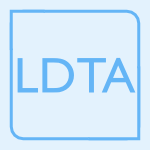 LDTA-J-2007-ScottJ #parsing #polynomial #recognition
LDTA-J-2007-ScottJ #parsing #polynomial #recognition- Recognition is not parsing — SPPF-style parsing from cubic recognisers (ES, AJ), pp. 55–70.
 ASPLOS-2010-Brewer
ASPLOS-2010-Brewer- Technology for developing regions: Moore’s law is not enough (EAB), pp. 1–2.
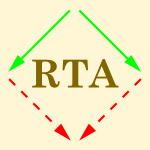 RTA-2010-NeurauterM #integer #polynomial
RTA-2010-NeurauterM #integer #polynomial- Polynomial Interpretations over the Reals do not Subsume Polynomial Interpretations over the Integers (FN, AM), pp. 243–258.
 SIGMOD-2009-ChapmanJ #question #why
SIGMOD-2009-ChapmanJ #question #why- Why not? (AC, HVJ), pp. 523–534.
 VLDB-2009-GatterbauerBKS #database
VLDB-2009-GatterbauerBKS #database- Believe It or Not: Adding Belief Annotations to Databases (WG, MB, NK, DS), pp. 1–12.
 CSMR-2009-Gyimothy #developer #metric #quality
CSMR-2009-Gyimothy #developer #metric #quality- To Use or Not to Use? The Metrics to Measure Software Quality (Developers’ View) (TG), pp. 3–4.
 ICSM-2009-HindleGH #analysis #developer #topic #what
ICSM-2009-HindleGH #analysis #developer #topic #what- What’s hot and what’s not: Windowed developer topic analysis (AH, MWG, RCH), pp. 339–348.
 LATA-2009-BehleKR
LATA-2009-BehleKR- Non-solvable Groups Are Not in FO+MOD+MÂJ2[REG] (CB, AK, SR), pp. 129–140.
 CHI-2009-BergmanTBCW #using
CHI-2009-BergmanTBCW #using- It’s not that important: demoting personal information of low subjective importance using GrayArea (OB, ST, RBM, EC, SW), pp. 269–278.
 CHI-2009-ChettyBMJ #comprehension #power management
CHI-2009-ChettyBMJ #comprehension #power management- It’s not easy being green: understanding home computer power management (MC, AJBB, BM, PJ), pp. 1033–1042.
 CHI-2009-HsiaoCHCHH #comparison #multi #paradigm
CHI-2009-HsiaoCHCHH #comparison #multi #paradigm- To move or not to move: a comparison between steerable versus fixed focus region paradigms in multi-resolution tabletop display systems (CHH, LWC, TTH, MCC, JYjH, YPH), pp. 153–162.
 CHI-2009-LimDA #why
CHI-2009-LimDA #why- Why and why not explanations improve the intelligibility of context-aware intelligent systems (BYL, AKD, DA), pp. 2119–2128.
 CHI-2009-Rader #repository #social
CHI-2009-Rader #repository #social- Yours, mine and (not) ours: social influences on group information repositories (ER), pp. 2095–2098.
 CHI-2009-RosnerB #learning
CHI-2009-RosnerB #learning- Learning from IKEA hacking: I’m not one to decoupage a tabletop and call it a day (DR, JB), pp. 419–422.
 CHI-2009-SchechterER #approach #authentication #social #what
CHI-2009-SchechterER #approach #authentication #social #what- It’s not what you know, but who you know: a social approach to last-resort authentication (SES, SE, RWR), pp. 1983–1992.
 ICEIS-DISI-2009-Missikoff #exclamation #question #semantics
ICEIS-DISI-2009-Missikoff #exclamation #question #semantics- Let’s Semanticise the World!!...or not?? (MM), pp. 17–24.
 CIKM-2009-DuchateauCBM
CIKM-2009-DuchateauCBM- (Not) yet another matcher (FD, RC, ZB, RJM), pp. 1537–1540.
 ECOOP-2009-Jones #haskell #what #why
ECOOP-2009-Jones #haskell #what #why- Classes, Jim, But Not as We Know Them — Type Classes in Haskell: What, Why, and Whither (SLPJ), p. 1.
 ECOOP-2009-XuRS #alias #analysis #points-to #scalability #using
ECOOP-2009-XuRS #alias #analysis #points-to #scalability #using- Scaling CFL-Reachability-Based Points-To Analysis Using Context-Sensitive Must-Not-Alias Analysis (G(X, AR, MS), pp. 98–122.
 ICSE-2009-BuseW #execution
ICSE-2009-BuseW #execution- The road not taken: Estimating path execution frequency statically (RPLB, WW), pp. 144–154.
 LICS-2009-CarraroS #reflexive #λ-calculus
LICS-2009-CarraroS #reflexive #λ-calculus- Reflexive Scott Domains are Not Complete for the Extensional λ Calculus (AC, AS), pp. 91–100.
 SIGMOD-2008-GhinitaKKST #query
SIGMOD-2008-GhinitaKKST #query- Private queries in location based services: anonymizers are not necessary (GG, PK, AK, CS, KLT), pp. 121–132.
 SIGMOD-2008-OlstonRSKT
SIGMOD-2008-OlstonRSKT- Pig latin: a not-so-foreign language for data processing (CO, BR, US, RK, AT), pp. 1099–1110.
 VLDB-2008-SidirourgosGKNM #data transformation #rdf
VLDB-2008-SidirourgosGKNM #data transformation #rdf- Column-store support for RDF data management: not all swans are white (LS, RG, MLK, NN, SM), pp. 1553–1563.
 CIAA-2008-ChamparnaudDJ #automaton #geometry #regular expression #testing
CIAA-2008-ChamparnaudDJ #automaton #geometry #regular expression #testing- Testing Whether a Binary and Prolongeable Regular Language LIs Geometrical or Not on the Minimal Deterministic Automaton of Pref(L) (JMC, JPD, HJ), pp. 68–77.
 ICALP-B-2008-EgriLT #datalog #symmetry
ICALP-B-2008-EgriLT #datalog #symmetry- Directed st-Connectivity Is Not Expressible in Symmetric Datalog (LE, BL, PT), pp. 172–183.
 LATA-2008-Giraud #string
LATA-2008-Giraud #string- Not So Many Runs in Strings (MG), pp. 232–239.
 CIKM-2008-BroderCFGJMMP #learning
CIKM-2008-BroderCFGJMMP #learning- To swing or not to swing: learning when (not) to advertise (AZB, MC, MF, EG, VJ, DM, VM, VP), pp. 1003–1012.
 SIGIR-2008-BuduraMCA #metadata #scalability
SIGIR-2008-BuduraMCA #metadata #scalability- To tag or not to tag -: harvesting adjacent metadata in large-scale tagging systems (AB, SM, PCM, KA), pp. 733–734.
 SIGIR-2008-TeevanDL #modelling #personalisation #query
SIGIR-2008-TeevanDL #modelling #personalisation #query- To personalize or not to personalize: modeling queries with variation in user intent (JT, STD, DJL), pp. 163–170.
 RE-2008-HoWR #fault #performance #problem #requirements
RE-2008-HoWR #fault #performance #problem #requirements- Examining the Relationships between Performance Requirements and “Not a Problem” Defect Reports (CWH, LW, BR), pp. 135–144.
 ICSE-2008-KoM #behaviour #debugging #why
ICSE-2008-KoM #behaviour #debugging #why- Debugging reinvented: asking and answering why and why not questions about program behavior (AJK, BAM), pp. 301–310.
 DAC-2007-GuptaKKSS
DAC-2007-GuptaKKSS- Line-End Shortening is Not Always a Failure (PG, ABK, YK, SS, DS), pp. 270–271.
 VLDB-2007-JohnsonHPMHSAF #question
VLDB-2007-JohnsonHPMHSAF #question- To Share or Not To Share? (RJ, NH, IP, NM, SH, KS, AA, BF), pp. 351–362.
 ICPC-2007-RatiuD #source code
ICPC-2007-RatiuD #source code- From Reality to Programs and (Not Quite) Back Again (DR, FD), pp. 91–102.
 PASTE-2007-HovemeyerP #debugging #null #pointer
PASTE-2007-HovemeyerP #debugging #null #pointer- Finding more null pointer bugs, but not too many (DH, WP), pp. 9–14.
 STOC-2007-Austrin #satisfiability
STOC-2007-Austrin #satisfiability- Balanced max 2-sat might not be the hardest (PA), pp. 189–197.
 STOC-2007-BorgsCDR #analysis
STOC-2007-BorgsCDR #analysis- First to market is not everything: an analysis of preferential attachment with fitness (CB, JTC, CD, SR), pp. 135–144.
 CHI-2007-JonesBHX #mobile #novel
CHI-2007-JonesBHX #mobile #novel- Questions not answers: a novel mobile search technique (MJ, GB, RH, PLX), pp. 155–158.
 HIMI-IIE-2007-IbrahimNM #concept #framework #online #trust #web
HIMI-IIE-2007-IbrahimNM #concept #framework #online #trust #web- “Seeing Is Not Believing But Interpreting”, Inducing Trust Through Institutional Symbolism: A Conceptual Framework for Online Trust Building in a Web Mediated Information Environment (ENMI, NLMN, SM), pp. 64–73.
 OCSC-2007-ChoY #how #programming
OCSC-2007-ChoY #how #programming- How to See the Beauty That Is Not There : The Aesthetic Element of Programming in the Computer- Based Media Art (HC, JY), pp. 292–300.
 CIKM-2007-GarakaniIHH #named #novel #query #xml
CIKM-2007-GarakaniIHH #named #novel #query #xml- Ntjfsatnot: a novel method for query with not-predicates on xml data (VG, SKI, MH, MH), pp. 885–888.
 KDD-2007-KohaviHS #web
KDD-2007-KohaviHS #web- Practical guide to controlled experiments on the web: listen to your customers not to the hippo (RK, RMH, DS), pp. 959–967.
 POPL-2007-NaikA #alias #concurrent #detection
POPL-2007-NaikA #alias #concurrent #detection- Conditional must not aliasing for static race detection (MN, AA), pp. 327–338.
 CSL-2007-BucciarelliEM
CSL-2007-BucciarelliEM- Not Enough Points Is Enough (AB, TE, GM), pp. 298–312.
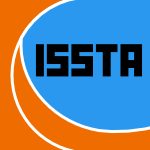 ISSTA-2007-ChangPY #approach #what
ISSTA-2007-ChangPY #approach #what- Finding what’s not there: a new approach to revealing neglected conditions in software (RYC, AP, JY), pp. 163–173.
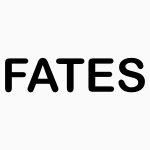 TestCom-FATES-2007-EldhPHJ #case study #component #fault #middleware #testing
TestCom-FATES-2007-EldhPHJ #case study #component #fault #middleware #testing- Component Testing Is Not Enough — A Study of Software Faults in Telecom Middleware (SE, SP, HH, PJ), pp. 74–89.
 VLDB-2006-BrunoC #design #lightweight #physics
VLDB-2006-BrunoC #design #lightweight #physics- To Tune or not to Tune? A Lightweight Physical Design Alerter (NB, SC), pp. 499–510.
 ITiCSE-2006-GharibyanG #case study #gender
ITiCSE-2006-GharibyanG #case study #gender- Gender gap in computer science does not exist in one former soviet republic: results of a study (HG, SG), pp. 222–226.
 ITiCSE-2006-ListerSTWP #taxonomy
ITiCSE-2006-ListerSTWP #taxonomy- Not seeing the forest for the trees: novice programmers and the SOLO taxonomy (RL, BS, ET, JLW, CP), pp. 118–122.
 ESOP-2006-Rudiak-GouldMJ #haskell #ml
ESOP-2006-Rudiak-GouldMJ #haskell #ml- Haskell Is Not Not ML (BRG, AM, SLPJ), pp. 38–53.
 ICALP-v1-2006-Kapoutsis
ICALP-v1-2006-Kapoutsis- Small Sweeping 2NFAs Are Not Closed Under Complement (CAK), pp. 144–156.
 CHI-2006-MyersWKC #user interface #why
CHI-2006-MyersWKC #user interface #why- Answering why and why not questions in user interfaces (BAM, DAW, AJK, DHC), pp. 397–406.
 CSCW-2006-WilsonGF #collaboration #scalability
CSCW-2006-WilsonGF #collaboration #scalability- Not all sharing is equal: the impact of a large display on small group collaborative work (SMW, JG, JF), pp. 25–28.
 CAiSE-2006-HaggmarkA #analysis #logic #principle #why
CAiSE-2006-HaggmarkA #analysis #logic #principle #why- Why Software Engineers Do Not Keep to the Principle of Separating Business Logic from Display: A Method Rationale Analysis (MH, PJÅ), pp. 399–413.
 SIGIR-2006-TrotmanL06a #query #why
SIGIR-2006-TrotmanL06a #query #why- Why structural hints in queries do not help XML-retrieval (AT, ML), pp. 711–712.
 MoDELS-2006-RashidM #domain model #modelling
MoDELS-2006-RashidM #domain model #modelling- Domain Models Are NOT Aspect Free (AR, AMDM), pp. 155–169.
 MoDELS-2006-RashidM #domain model #modelling
MoDELS-2006-RashidM #domain model #modelling- Domain Models Are NOT Aspect Free (AR, AMDM), pp. 155–169.
 ASE-2005-Zheng #source code #testing
ASE-2005-Zheng #source code #testing- In regression testing selection when source code is not available (JZ0), pp. 452–455.
 ICDAR-2005-RinglstetterSML #fault
ICDAR-2005-RinglstetterSML #fault- The Same is Not The same — Post Correction of Alphabet Confusion Errors in Mixed-Alphabet OCR Recognation (CR, KUS, SM, KL), pp. 406–410.
 SIGMOD-2005-LakshmananNR
SIGMOD-2005-LakshmananNR- To Do or Not To Do: The Dilemma of Disclosing Anonymized Data (LVSL, RTN, GR), pp. 61–72.
 FoSSaCS-2005-AehligMO #safety #strict #string
FoSSaCS-2005-AehligMO #safety #strict #string- Safety Is not a Restriction at Level 2 for String Languages (KA, JGdM, CHLO), pp. 490–504.
 STOC-2005-BojanczykC #automaton #regular expression
STOC-2005-BojanczykC #automaton #regular expression- Tree-walking automata do not recognize all regular languages (MB, TC), pp. 234–243.
 MoDELS-2005-CraneD #modelling #uml
MoDELS-2005-CraneD #modelling #uml- UML Vs. Classical Vs. Rhapsody Statecharts: Not All Models Are Created Equal (MLC, JD), pp. 97–112.
 MoDELS-2005-CraneD #modelling #uml
MoDELS-2005-CraneD #modelling #uml- UML Vs. Classical Vs. Rhapsody Statecharts: Not All Models Are Created Equal (MLC, JD), pp. 97–112.
 GPCE-2005-HirschkoffHPSS #component #programming
GPCE-2005-HirschkoffHPSS #component #programming- Component-Oriented Programming with Sharing: Containment is Not Ownership (DH, TH, DP, AS, JBS), pp. 389–404.
 RE-2005-BerryDFGHW #question #requirements #why
RE-2005-BerryDFGHW #question #requirements #why- To do or not to do: If the requirements engineering payoff is so good, why aren’t more companies doing it? (DMB, DD, AF, DCG, RH, AW), p. 447.
 SAC-2005-ToKS #exclamation #mobile #network
SAC-2005-ToKS #exclamation #mobile #network- Mobile agents for network management: when and when not! (HHT, SK, BS), pp. 47–53.
 ICSE-2005-MaurerM #agile #what
ICSE-2005-MaurerM #agile #what- What you always wanted to know about agile methods but did not dare to ask (FM, GM), pp. 731–732.
 DATE-v1-2004-KretzschmarNM #power management #why
DATE-v1-2004-KretzschmarNM #power management #why- Why Transition Coding for Power Minimization of On-Chip Buses Does Not Work (CK, AKN, DM), pp. 512–517.
 HT-2004-MartinTA
HT-2004-MartinTA- The end-point is not enough (DM, MT, HA), pp. 128–129.
 SIGMOD-2004-IpeirotisG #database #using
SIGMOD-2004-IpeirotisG #database #using- When one Sample is not Enough: Improving Text Database Selection Using Shrinkage (PGI, LG), pp. 767–778.
 SCAM-2004-Krinke #context-sensitive grammar #matter
SCAM-2004-Krinke #context-sensitive grammar #matter- Context-Sensitivity Matters, But Context Does Not (JK), pp. 29–35.
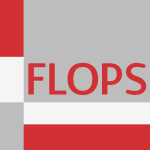 FLOPS-2004-BuenoB
FLOPS-2004-BuenoB- Set-Sharing Is Not Always Redundant for Pair-Sharing (FB, MJGdlB), pp. 117–131.
 CHI-2004-AdamczykB #execution
CHI-2004-AdamczykB #execution- If not now, when?: the effects of interruption at different moments within task execution (PDA, BPB), pp. 271–278.
 CHI-2004-SchianoES #category theory #imperative
CHI-2004-SchianoES #category theory #imperative- Categorical imperative NOT: facial affect is perceived continuously (DJS, SME, KS), pp. 49–56.
 CHI-2004-TeevanAAK #behaviour #case study
CHI-2004-TeevanAAK #behaviour #case study- The perfect search engine is not enough: a study of orienteering behavior in directed search (JT, CA, MSA, DRK), pp. 415–422.
 ICPR-v2-2004-GimelfarbGZ #modelling #probability #question
ICPR-v2-2004-GimelfarbGZ #modelling #probability #question- To FRAME or not to FRAME in Probabilistic Texture Modelling? (GLG, LJVG, AZ), pp. 707–711.
 CAV-2004-GopalakrishnanYS #execution #memory management #order #performance #verification
CAV-2004-GopalakrishnanYS #execution #memory management #order #performance #verification- QB or Not QB: An Efficient Execution Verification Tool for Memory Orderings (GG, YY, HS), pp. 401–413.
 VMCAI-2004-Wilhelm #why
VMCAI-2004-Wilhelm #why- Why AI + ILP Is Good for WCET, but MC Is Not, Nor ILP Alone (RW), pp. 309–322.
 PODS-2003-CormodeM #what
PODS-2003-CormodeM #what- What’s hot and what’s not: tracking most frequent items dynamically (GC, SM), pp. 296–306.
 CSEET-2003-RoscaTM #industrial
CSEET-2003-RoscaTM #industrial- In today’s software industry a software engineer is not only expected to successfully cope (DR, WMT, JM), pp. 129–139.
 ITiCSE-2003-Christensen #education #exclamation #testing #topic
ITiCSE-2003-Christensen #education #exclamation #testing #topic- Systematic testing should not be a topic in the computer science curriculum! (HBC), pp. 7–10.
 CSMR-2003-LuciaHHK #slicing
CSMR-2003-LuciaHHK #slicing- Unions of Slices Are Not Slices (ADL, MH, RMH, JK), pp. 363–367.
 EDOC-2003-GreenfieldFJK
EDOC-2003-GreenfieldFJK- Compensation is Not Enough (PG, AF, JJ, DK), pp. 232–239.
 KDD-2003-EtzioniTKY #mining
KDD-2003-EtzioniTKY #mining- To buy or not to buy: mining airfare data to minimize ticket purchase price (OE, RT, CAK, AY), pp. 119–128.
 CAV-2003-BehrmannLP
CAV-2003-BehrmannLP- To Store or Not to Store (GB, KGL, RP), pp. 433–445.
 SAT-2003-PorschenRS #algorithm #linear #problem #satisfiability
SAT-2003-PorschenRS #algorithm #linear #problem #satisfiability- Linear Time Algorithms for Some Not-All-Equal Satisfiability Problems (SP, BR, ES), pp. 172–187.
 DATE-2002-LinBP #3d #modelling #question
DATE-2002-LinBP #3d #modelling #question- On-Chip Inductance Models: 3D or Not 3D? (TL, MWB, LTP), p. 1112.
 ITiCSE-2002-Wirth #education
ITiCSE-2002-Wirth #education- Computing science education: the road not taken (NW), pp. 1–3.
 SAS-2002-BagnaraRZH #library
SAS-2002-BagnaraRZH #library- Possibly Not Closed Convex Polyhedra and the Parma Polyhedra Library (RB, ER, EZ, PMH), pp. 213–229.
 ICALP-2002-Hertling #markov
ICALP-2002-Hertling #markov- A Banach-Mazur Computable But Not Markov Computable Function on the Computable Real Numbers (PH), pp. 962–972.
 ICALP-2002-Merkle #probability #sequence
ICALP-2002-Merkle #probability #sequence- The Kolmogorov-Loveland Stochastic Sequences Are Not Closed under Selecting Subsequences (WM), pp. 390–400.
 FME-2002-Bicarregui
FME-2002-Bicarregui- Do Not Read This (JB), pp. 106–125.
 ICPR-v2-2002-Duin #classification #question
ICPR-v2-2002-Duin #classification #question- The Combining Classifier: To Train or Not to Train? (RPWD), pp. 765–770.
 ICLP-2002-DemoenNV #garbage collection #question
ICLP-2002-DemoenNV #garbage collection #question- Copying Garbage Collection for the WAM: To Mark or Not to Mark? (BD, PLN, RV), pp. 194–208.
 DAC-2001-DallyT #network
DAC-2001-DallyT #network- Route Packets, Not Wires: On-Chip Interconnection Networks (WJD, BT), pp. 684–689.
 ICDAR-2001-AllanASH #assessment #automation
ICDAR-2001-AllanASH #assessment #automation- Automated Assessment: It’s Assessment Jim But Not As We Know It (JA, TA, NS, PH), pp. 926–931.
 FLOPS-2001-DeransartS #logic programming #source code
FLOPS-2001-DeransartS #logic programming #source code- Well-Typed Logic Programs Are not Wrong (PD, JGS), pp. 280–295.
 ICALP-2001-Nielsen #modelling #partial order #question #why
ICALP-2001-Nielsen #modelling #partial order #question #why- Modelling with Partial Orders — Why and Why Not? (MN), pp. 61–63.
 CHI-2001-CockburnM #3d #documentation
CHI-2001-CockburnM #3d #documentation- 3D or not 3D? evaluating the effect of the third dimension in a document management system (AC, BJM), pp. 434–441.
 SIGAda-2001-Amey
SIGAda-2001-Amey- A language for systems not just software (PA), pp. 3–11.
 CAiSE-2001-TreschJ #evolution
CAiSE-2001-TreschJ #evolution- Evolution not Revolution: The Data Warehousing Strategy at Credit Suisse Financial Services (MT, DJ), pp. 36–45.
 SIGIR-2001-TurpinH #why
SIGIR-2001-TurpinH #why- Why Batch and User Evaluations Do Not Give the Same Results (AT, WRH), pp. 225–231.
 TLCA-2001-Geuvers #dependent type #higher-order #induction #type system
TLCA-2001-Geuvers #dependent type #higher-order #induction #type system- Induction Is Not Derivable in Second Order Dependent Type Theory (HG), pp. 166–181.
 VLDB-2000-Carey #industrial #research
VLDB-2000-Carey #industrial #research- Toto, We’re Not in Kansas Anymore: On Transitioning from Research to the Real (Invited Industrial Talk) (MJC), p. 733.
 FASE-2000-BellegardeJK #composition #refinement
FASE-2000-BellegardeJK #composition #refinement- Ready-Simulation Is Not Ready to Express a Modular Refinement Relation (FB, JJ, OK), pp. 266–283.
 FASE-2000-Soley
FASE-2000-Soley- Memex Is Not Enough (RMS), p. 21.
 ICALP-2000-FournierK #bound
ICALP-2000-FournierK #bound- Lower Bounds Are Not Easier over the Reals: Inside PH (HF, PK), pp. 832–843.
 ICPR-v2-2000-TombreT #recognition
ICPR-v2-2000-TombreT #recognition- Vectorization in Graphics Recognition: To Thin or Not to Thin (KT, ST), pp. 2091–2096.
 POPL-2000-AspertiCM #recursion
POPL-2000-AspertiCM #recursion- (Optimal) Duplication is not Elementary Recursive (AA, PC, SM), pp. 96–107.
 ICSE-2000-Bryant #problem #question #re-engineering
ICSE-2000-Bryant #problem #question #re-engineering- It’s engineering Jim ... but not as we know it: software engineering — solution to the software crisis, or part of the problem? (AB), pp. 78–87.
 CSL-2000-ComonC
CSL-2000-ComonC- Flatness Is Not a Weakness (HC, VC), pp. 262–276.
 ITiCSE-1999-DagdilelisS
ITiCSE-1999-DagdilelisS- Didactics too, not only technology (VD, MS), p. 183.
 ICFP-1999-Longley #functional #question
ICFP-1999-Longley #functional #question- When is a Functional Program Not a Functional Program? (JL), pp. 1–7.
 KDD-1999-Sahar #what
KDD-1999-Sahar #what- Interestingness via What is Not Interesting (SS), pp. 332–336.
 UML-1999-DemeyerDT #uml #why
UML-1999-DemeyerDT #uml #why- Why Unified is not Universal? UML Shortcomings for Coping with Round-trip Engineering (SD, SD, ST), pp. 630–644.
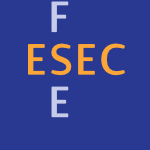 ESEC-FSE-1999-Zeller #question #why
ESEC-FSE-1999-Zeller #question #why- Yesterday, My Program Worked. Today, It Does Not. Why? (AZ), pp. 253–267.
 HPCA-1999-HilyS #effectiveness #execution #multi #thread
HPCA-1999-HilyS #effectiveness #execution #multi #thread- Out-of-Order Execution may not be Cost-Effective on Processors Featuring Simultaneous Multithreading (SH, AS), pp. 64–67.
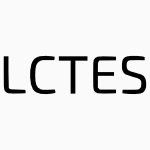 LCTES-1999-Engblom #benchmark #embedded #metric #tool support #why
LCTES-1999-Engblom #benchmark #embedded #metric #tool support #why- Why SpecInt95 Should Not Be Used to Benchmark Embedded Systems Tools (JE), pp. 96–103.
 TACAS-1998-BrockmeyerW #design #verification
TACAS-1998-BrockmeyerW #design #verification- Tamagotchis Need Not Die — Verification of STATEMENT Design (UB, GW), pp. 217–231.
 STOC-1998-BeigelBF #detection
STOC-1998-BeigelBF #detection- NP Might Not Be As Easy As Detecting Unique Solutions (RB, HB, LF), pp. 203–208.
 KR-1998-Rintanen #algorithm
KR-1998-Rintanen #algorithm- A Planning Algorithm not based on Directional Search (JR), pp. 617–625.
 KR-1998-Thielscher #how
KR-1998-Thielscher #how- How (Not) To Minimize Events (MT), pp. 60–73.
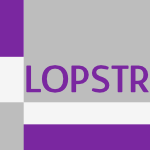 LOPSTR-1998-FuchsSS #logic #specification
LOPSTR-1998-FuchsSS #logic #specification- Attempto Controlled English — Not Just Another Logic Specification Language (NEF, US, RS), pp. 1–20.
 POPL-1998-AspertiM #parallel #recursion #reduction
POPL-1998-AspertiM #parallel #recursion #reduction- Parallel β Reduction is not Elementary Recursive (AA, HGM), pp. 303–315.
 REFSQ-1998-BayiasHV #named
REFSQ-1998-BayiasHV #named- OASIS: Not According to Hoyle (PPB, TH, PV), pp. 181–184.
 ITiCSE-1997-Lawhead97a #distance #learning #web #what
ITiCSE-1997-Lawhead97a #distance #learning #web #what- The Web and distance learning (panel): what is appropriate and what is not (PBL), p. 144.
 ITiCSE-WGR-1997-LawheadABCCDDFS #distance #learning #web #what
ITiCSE-WGR-1997-LawheadABCCDDFS #distance #learning #web #what- The Web and distance learning: what is appropriate and what is not (report of the ITiCSE 1997 working group on the web and distance learning) (PBL, EA, CGB, LC, DC, JD, MD, ERF, KS), pp. 27–37.
 STOC-1997-GoreJ #process
STOC-1997-GoreJ #process- The Swendsen-Wang Process Does Not Always Mix Rapidly (VG, MJ), pp. 674–681.
 STOC-1997-LoH #robust
STOC-1997-LoH #robust- All of Us are Smarter Than Any of Us: Wait-Free Hierarchies are not Robust (WKL, VH), pp. 579–588.
 CIKM-1997-DimitrovaME #video
CIKM-1997-DimitrovaME #video- Video Keyframe Extraction and Filtering: A Keyframe is not a Keyframe to Everyone (ND, TM, HE), pp. 113–120.
 ECOOP-1997-BrucePF #object-oriented #type system
ECOOP-1997-BrucePF #object-oriented #type system- Subtyping Is Not a Good “Match” for Object-Oriented Languages (KBB, LP, AF), pp. 104–127.
 TOOLS-PACIFIC-1997-BrosLS #java
TOOLS-PACIFIC-1997-BrosLS #java- Java Does not Distribute (GB, KPL, AS), pp. 144–152.
 LOPSTR-1997-VanhoofM
LOPSTR-1997-VanhoofM- To Parse or Not To Parse (WV, BM), pp. 322–342.
 ILPS-1997-SeidlF
ILPS-1997-SeidlF- Disjuntive Completion Is Not “Optimal” (HS, CF), p. 408.
 LICS-1997-BaillotDE #game studies #linear #logic
LICS-1997-BaillotDE #game studies #linear #logic- Believe it or not, AJM’s Games Model is a Model of Classical Linear Logic (PB, VD, TE, LR), pp. 68–75.
 AdaEurope-1996-Waroquiers #ada #exclamation #memory management
AdaEurope-1996-Waroquiers #ada #exclamation #memory management- Ada Tasking and Dynamic Memory: To Use or Not To Use, That’s a Question! (PW), pp. 460–470.
 CAiSE-1996-SiauWB #bias #modelling
CAiSE-1996-SiauWB #bias #modelling- When Parents Need Not Have Children — Cognitive Biases in Information Modeling (KS, YW, IB), pp. 402–420.
 ICML-1996-RaviseS #evolution #fault
ICML-1996-RaviseS #evolution #fault- An Advanced Evolution Should Not Repeat its Past Errors (CR, MS), pp. 400–408.
 ICPR-1996-BhattacharyaCP #segmentation #set
ICPR-1996-BhattacharyaCP #segmentation #set- An MLP-based texture segmentation technique which does not require a feature set (UB, BBC, SKP), pp. 805–809.
 ICSE-1996-Schneider #how #prototype #why
ICSE-1996-Schneider #how #prototype #why- Prototypes as Assets, not Toys: Why and How to Extract Knowledge from Prototypes (KS), pp. 522–531.
 PODS-1995-StoloboushkinT #effectiveness #finite #query #syntax
PODS-1995-StoloboushkinT #effectiveness #finite #query #syntax- Finite Queries do not Have Effective Syntax (APS, MAT), pp. 277–285.
 SIGMOD-1995-French #architecture #database
SIGMOD-1995-French #architecture #database- “One Size Fits All” Database Architectures Do Not Work for DDS (CDF), pp. 449–450.
 TLCA-1995-Mellie #λ-calculus
TLCA-1995-Mellie #λ-calculus- Typed λ-calculi with explicit substitutions may not terminate (PAM), pp. 328–334.
 AdaEurope-1994-WardS #exclamation #object-oriented
AdaEurope-1994-WardS #exclamation #object-oriented- Object Orientation is not Always Best! (RW, JS), pp. 104–110.
 ICML-1994-Mahadevan #case study #learning
ICML-1994-Mahadevan #case study #learning- To Discount or Not to Discount in Reinforcement Learning: A Case Study Comparing R Learning and Q Learning (SM), pp. 164–172.
 LICS-1994-Sewell #axiom #bisimulation #equation #first-order
LICS-1994-Sewell #axiom #bisimulation #equation #first-order- Bisimulation is Not Finitely (First Order) Equationally Axiomatisable (PS), pp. 62–70.
 INTERCHI-1993-GaverSHL #multi
INTERCHI-1993-GaverSHL #multi- One is not enough: multiple views in a media space (WWG, AS, CH, PL), pp. 335–341.
 TOOLS-USA-1993-Malloy #assessment #empirical #interface #object-oriented #prototype
TOOLS-USA-1993-Malloy #assessment #empirical #interface #object-oriented #prototype- An Empirical Assessment of Interface Changes for an Object-Oriented, “Not-So-Rapid” Prototype (MAM), pp. 241–253.
 TOOLS-USA-1993-WhiteW #information management #object-oriented #question
TOOLS-USA-1993-WhiteW #information management #object-oriented #question- Utilization of Object-Oriented Technology in Mainstream Information Systems: if not now, when? (KW, EW), pp. 497–498.
 ESEC-1993-EmmerichSW #database #re-engineering
ESEC-1993-EmmerichSW #database #re-engineering- Databases for Software Engineering Environments — The Goal has not yet been attained (WE, WS, JW), pp. 145–162.
 ESEC-1993-Harel
ESEC-1993-Harel- Computers are not Omnipotent (Abstract) (DH), p. 10.
 TLCA-1993-Ghelli #recursion
TLCA-1993-Ghelli #recursion- Recursive Types Are not Conservative over F (GG), pp. 146–162.
 WSA-1992-MycroftR #graph
WSA-1992-MycroftR #graph- Minimal Function Graphs are not Instrumented (AM, MR), pp. 60–67.
 ECOOP-1992-Szyperski #inheritance #why
ECOOP-1992-Szyperski #inheritance #why- Import is Not Inheritance — Why We Need Both: Modules and Classes (CAS), pp. 19–32.
 PLILP-1992-AptP #problem #why
PLILP-1992-AptP #problem #why- Why the Occur-Check is Not a Problem (KRA, AP), pp. 69–86.
 VDME-1991-1-BednarczykB #recursion
VDME-1991-1-BednarczykB #recursion- CPO’s do not form a CPO, and yet Recursion Works (MAB, AMB), pp. 268–278.
 SIGIR-1991-Korfhage #query #question
SIGIR-1991-Korfhage #query #question- To See, or Not to See: Is That the Query? (RK), pp. 134–141.
 ICSE-1991-RustonMC #design
ICSE-1991-RustonMC #design- Designing Software for Use by Humans, not Machines (LR, MJM, KDC), pp. 104–113.
 ISLP-1991-DeransartFT #source code
ISLP-1991-DeransartFT #source code- NSTO Programs (Not Subject to Occur-Check) (PD, GF, MT), pp. 533–547.
 STOC-1990-GilHW #constant
STOC-1990-GilHW #constant- Not All Keys Can Be Hashed in Constant Time (Preliminary Version) (JYG, FMadH, AW), pp. 244–253.
 POPL-1990-CookHC #inheritance #type system
POPL-1990-CookHC #inheritance #type system- Inheritance Is Not Subtyping (WRC, WLH, PSC), pp. 125–135.
 PODS-1989-CohenW #knowledge base #parallel #why
PODS-1989-CohenW #knowledge base #parallel #why- Why a Single Parallelization Strategy in not Enough in Knowledge Bases (SRC, OW), pp. 200–216.
 SEI-1989-Engle #re-engineering
SEI-1989-Engle #re-engineering- Software Engineering is Not Computer Science (CBEJ), pp. 257–262.
 ICSE-1989-Finkelstein #development #modelling #quote #representation
ICSE-1989-Finkelstein #development #modelling #quote #representation- “Not Waving but Drowning”: Representation Schemes for Modelling Software Development (AF), pp. 402–404.
 PODS-1988-KolaitisP #fixpoint #question #why
PODS-1988-KolaitisP #fixpoint #question #why- Why Not Negation by Fixpoint? (PGK, CHP), pp. 231–239.
 ECOOP-1988-BuhrZ #object-oriented
ECOOP-1988-BuhrZ #object-oriented- Nesting in an Object-Oriented Language is NOT for the Birds (PAB, CRZ), pp. 128–145.
 ECOOP-1988-MadsenM #object-oriented #programming #what
ECOOP-1988-MadsenM #object-oriented #programming #what- What Object-Oriented Programming May Be — and What It Does Not Have To Be (OLM, BMP), pp. 1–20.
 POPL-1986-MeyerR
POPL-1986-MeyerR- “Type” Is Not A Type (ARM, MBR), pp. 287–295.
 PODS-1984-ImielinskiS #database #on the
PODS-1984-ImielinskiS #database #on the- On Lossless Transformation of Database Schemes not Necessarily Satisfying Universal Instance Assumption (TI, NS), pp. 258–265.
 POPL-1983-EmersonH #branch #linear
POPL-1983-EmersonH #branch #linear- “Sometimes” and “Not Never” Revisited: On Branching Versus Linear Time (EAE, JYH), pp. 127–140.
 DAC-1981-SoleckyP #testing #verification
DAC-1981-SoleckyP #testing #verification- Test data verification — not just the final step for test data before release for production testing (PS, RLP), pp. 881–890.
 DAC-1980-Armstrong #what
DAC-1980-Armstrong #what- A CAD user’s perspective what gets done right wrong and not at all (Position Paper) (RAA), p. 517.
 VLDB-1980-WilsonH #semantics
VLDB-1980-WilsonH #semantics- Semantics vs. Graphics — To Show or not to Show (GAW, CFH), pp. 183–197.
 POPL-1980-Lamport #logic #quote #source code
POPL-1980-Lamport #logic #quote #source code- “Sometime” is Sometimes “Not Never” — On the Temporal Logic of Programs (LL), pp. 174–185.
 ICSE-1978-Littlewood #how #reliability
ICSE-1978-Littlewood #how #reliability- How to Measure Software Reliability, and How Not To (BL), pp. 37–45.
 VLDB-1977-Makinouchi #normalisation #relational
VLDB-1977-Makinouchi #normalisation #relational- A Consideration on Normal Form of Not-Necessarily-Normalized Relation in the Relational Data Model (AM), pp. 447–453.
 ICALP-1976-FriedmanW
ICALP-1976-FriedmanW- CONS Should Not Evaluate its Arguments (DPF, DSW), pp. 257–284.
 DAC-1973-Freitag
DAC-1973-Freitag- Some things that did not happen in software DA (HF), p. 61.
 POPL-1973-Morris #set
POPL-1973-Morris #set- Types are Not Sets (JHMJ), pp. 120–124.
 SHARE-1964-LoydFL
SHARE-1964-LoydFL- Additional papers not available within the printed proceedings (DL, CWF, ELL).
 DAC-2015-HahnKL #garbage collection
DAC-2015-HahnKL #garbage collection DATE-2015-FuLX #energy #memory management
DATE-2015-FuLX #energy #memory management PODS-2015-CateCST #ontology #using
PODS-2015-CateCST #ontology #using SIGMOD-2015-PantelaI
SIGMOD-2015-PantelaI VLDB-2015-BidoitHT #named
VLDB-2015-BidoitHT #named VLDB-2015-GaoL0ZZ #query
VLDB-2015-GaoL0ZZ #query VLDB-2015-NaziZT0D #network #online #performance #social
VLDB-2015-NaziZT0D #network #online #performance #social SANER-2015-AmmerlaanVZ #refactoring #why
SANER-2015-AmmerlaanVZ #refactoring #why ICALP-v1-2015-FontesJKLLR #communication #complexity
ICALP-v1-2015-FontesJKLLR #communication #complexity CHI-2015-KnavingWFB #comprehension #design #motivation
CHI-2015-KnavingWFB #comprehension #design #motivation CHI-2015-Nancel0L
CHI-2015-Nancel0L CHI-2015-PolitisBP #multimodal
CHI-2015-PolitisBP #multimodal CSCW-2015-BiehlAD #communication #comprehension
CSCW-2015-BiehlAD #communication #comprehension CSCW-2015-FoxUR #recognition
CSCW-2015-FoxUR #recognition CSCW-2015-LiuIP #comprehension #how #maintenance #quote
CSCW-2015-LiuIP #comprehension #how #maintenance #quote CSCW-2015-WieseMHZ #quote
CSCW-2015-WieseMHZ #quote CSCW-2015-ZhaoFZZD #online #social
CSCW-2015-ZhaoFZZD #online #social DUXU-DD-2015-Mesbahi #exclamation #interactive
DUXU-DD-2015-Mesbahi #exclamation #interactive HCI-IT-2015-GuXCZ #using
HCI-IT-2015-GuXCZ #using HCI-IT-2015-JeongS #case study #how #smarttech #user interface #what
HCI-IT-2015-JeongS #case study #how #smarttech #user interface #what SCSM-2015-BeldadK #facebook #risk management
SCSM-2015-BeldadK #facebook #risk management ICEIS-v1-2015-Mocker #complexity #how
ICEIS-v1-2015-Mocker #complexity #how RecSys-2015-BetzalelSR #exclamation #quote #recommendation
RecSys-2015-BetzalelSR #exclamation #quote #recommendation ECMFA-2015-DiskinMC #category theory #imperative #model management #visual notation
ECMFA-2015-DiskinMC #category theory #imperative #model management #visual notation SAC-2015-NaqviMRPHB #artificial reality #deployment #mobile
SAC-2015-NaqviMRPHB #artificial reality #deployment #mobile ESEC-FSE-2015-BellerGPZ #developer #how #ide #why
ESEC-FSE-2015-BellerGPZ #developer #how #ide #why ICSE-v2-2015-CzerwonkaGT #bibliography #code review #debugging #how
ICSE-v2-2015-CzerwonkaGT #bibliography #code review #debugging #how LICS-2015-EndrullisGH #encoding
LICS-2015-EndrullisGH #encoding DocEng-2014-HailpernVD #how #named #what
DocEng-2014-HailpernVD #how #named #what ICSME-2014-EderFHJ #question
ICSME-2014-EderFHJ #question MSR-2014-KochharLL #classification #debugging #locality #question
MSR-2014-KochharLL #classification #debugging #locality #question ICALP-v1-2014-IaconoO #why
ICALP-v1-2014-IaconoO #why CHI-2014-RadleJMR #navigation #performance
CHI-2014-RadleJMR #navigation #performance DUXU-DP-2014-LinkLB #challenge #gamification #metric #smarttech
DUXU-DP-2014-LinkLB #challenge #gamification #metric #smarttech HCI-AIMT-2014-FleischmannSS #case study #comparative #interactive #modelling #process
HCI-AIMT-2014-FleischmannSS #case study #comparative #interactive #modelling #process HCI-TMT-2014-JuniorSFMC #performance
HCI-TMT-2014-JuniorSFMC #performance LCT-TRE-2014-LorenzK #exclamation #online
LCT-TRE-2014-LorenzK #exclamation #online KDIR-2014-SuciuICDP #learning #word
KDIR-2014-SuciuICDP #learning #word RecSys-2014-LiuWW #what
RecSys-2014-LiuWW #what SIGIR-2014-KumarJF #detection #twitter #using
SIGIR-2014-KumarJF #detection #twitter #using SIGIR-2014-SavenkovA #effectiveness
SIGIR-2014-SavenkovA #effectiveness ICSE-2014-InozemtsevaH #correlation #effectiveness #testing
ICSE-2014-InozemtsevaH #correlation #effectiveness #testing SPLC-2014-BergerSOHLW #case study #experience #modelling #variability
SPLC-2014-BergerSOHLW #case study #experience #modelling #variability SPLC-2014-Hubaux #product line #research #what
SPLC-2014-Hubaux #product line #research #what OSDI-2014-PillaiCAAAA #complexity #file system
OSDI-2014-PillaiCAAAA #complexity #file system DAC-2013-FariborziCNCHLLS
DAC-2013-FariborziCNCHLLS HT-2013-VigoH #information management
HT-2013-VigoH #information management ITiCSE-2013-Kurkovsky #mobile #question #why
ITiCSE-2013-Kurkovsky #mobile #question #why ICALP-v1-2013-DemainePRSSW #assembly
ICALP-v1-2013-DemainePRSSW #assembly CSCW-2013-PanLCL #process #social #what
CSCW-2013-PanLCL #process #social #what HIMI-D-2013-MasieroTJ #parametricity
HIMI-D-2013-MasieroTJ #parametricity OCSC-2013-HeKP #case study #community #distance #online
OCSC-2013-HeKP #case study #community #distance #online CIKM-2013-GanuM #multi #web
CIKM-2013-GanuM #multi #web CIKM-2013-MalliarosV #graph #modelling #social
CIKM-2013-MalliarosV #graph #modelling #social KDD-2013-Etzioni
KDD-2013-Etzioni RecSys-2013-DzyaburaT #how #recommendation
RecSys-2013-DzyaburaT #how #recommendation RecSys-2013-ZhangWCZ #personalisation #perspective #risk management
RecSys-2013-ZhangWCZ #personalisation #perspective #risk management REFSQ-2013-DanevaBH #architecture #case study #experience #quality #question #requirements #what
REFSQ-2013-DanevaBH #architecture #case study #experience #quality #question #requirements #what REFSQ-2013-PhilippoHKCB #ambiguity #empirical #evaluation
REFSQ-2013-PhilippoHKCB #ambiguity #empirical #evaluation SAC-2013-ZhongM #analysis #empirical #game studies
SAC-2013-ZhongM #analysis #empirical #game studies ICSE-2013-FerrucciHRS #multi #re-engineering
ICSE-2013-FerrucciHRS #multi #re-engineering ICSE-2013-HerzigJZ #classification #debugging #how #predict
ICSE-2013-HerzigJZ #classification #debugging #how #predict ASPLOS-2013-KangW #approach #hardware
ASPLOS-2013-KangW #approach #hardware SOSP-2013-XuZHZSYZP
SOSP-2013-XuZHZSYZP DAC-2012-JoubertDBTH #3d #exclamation #problem
DAC-2012-JoubertDBTH #3d #exclamation #problem DAC-2012-KirschP #problem
DAC-2012-KirschP #problem DAC-2012-SeversonYD #performance #question #reduction
DAC-2012-SeversonYD #performance #question #reduction SIGMOD-2012-ZukowskiB #challenge #research
SIGMOD-2012-ZukowskiB #challenge #research VLDB-2012-PattersonENAA #concurrent #multi
VLDB-2012-PattersonENAA #concurrent #multi ITiCSE-2012-DennyLT #fault #syntax
ITiCSE-2012-DennyLT #fault #syntax TACAS-2012-Hermanns #grid #modelling
TACAS-2012-Hermanns #grid #modelling CSMR-2012-BernardiCLPD #communication #debugging #developer #eclipse
CSMR-2012-BernardiCLPD #communication #debugging #developer #eclipse LATA-2012-MiasnikovS #automation #graph
LATA-2012-MiasnikovS #automation #graph CHI-2012-CoxCSC #challenge #experience #game studies
CHI-2012-CoxCSC #challenge #experience #game studies CHI-2012-MarkVC #email #empirical #quote
CHI-2012-MarkVC #email #empirical #quote CHI-2012-ZhuHL #comprehension #online #social
CHI-2012-ZhuHL #comprehension #online #social CSCW-2012-EiriksdottirKCMMXP #comprehension #game studies #health #multi #pervasive
CSCW-2012-EiriksdottirKCMMXP #comprehension #game studies #health #multi #pervasive CSCW-2012-LeeTH #coordination #named
CSCW-2012-LeeTH #coordination #named CSCW-2012-SchroterADK #communication
CSCW-2012-SchroterADK #communication ICML-2012-MannorMX #nondeterminism #robust
ICML-2012-MannorMX #nondeterminism #robust KEOD-2012-Exman #concept
KEOD-2012-Exman #concept SIGIR-2012-ArroyueloGMOS #ranking #trade-off
SIGIR-2012-ArroyueloGMOS #ranking #trade-off PLATEAU-2012-MeyerovichR12a #bibliography #case study #developer #experience #how #repository
PLATEAU-2012-MeyerovichR12a #bibliography #case study #developer #experience #how #repository SAC-2012-NunesARTCS #analysis #data type
SAC-2012-NunesARTCS #analysis #data type ICSE-2012-Johnson #case study #question #static analysis #tool support #using #why
ICSE-2012-Johnson #case study #question #static analysis #tool support #using #why QoSA-ISARCS-2011-Stal #architecture
QoSA-ISARCS-2011-Stal #architecture DAC-2011-TamB #question
DAC-2011-TamB #question ITiCSE-2011-PauHGW #case study #exclamation #experience #programming #student
ITiCSE-2011-PauHGW #case study #exclamation #experience #programming #student STOC-2011-GolabHW #distributed #implementation #random
STOC-2011-GolabHW #distributed #implementation #random DLT-2011-KortelainenS #bound #context-free grammar
DLT-2011-KortelainenS #bound #context-free grammar ICALP-v1-2011-BeyersdorffGLR #bound
ICALP-v1-2011-BeyersdorffGLR #bound ICALP-v1-2011-JansenS #constant #polynomial
ICALP-v1-2011-JansenS #constant #polynomial LATA-2011-KowalukLL
LATA-2011-KowalukLL CHI-2011-BaumerS #design
CHI-2011-BaumerS #design CSCW-2011-GuoZNM #debugging #exclamation
CSCW-2011-GuoZNM #debugging #exclamation CSCW-2011-NewmanLMRM #challenge #facebook #health #network #online #problem #social #using
CSCW-2011-NewmanLMRM #challenge #facebook #health #network #online #problem #social #using DUXU-v2-2011-Horvath #design #persuasion
DUXU-v2-2011-Horvath #design #persuasion HCI-MIIE-2011-WangZYZSP #what
HCI-MIIE-2011-WangZYZSP #what HCI-UA-2011-Loiacono-MelloDTP #case study #generative #why
HCI-UA-2011-Loiacono-MelloDTP #case study #generative #why IDGD-2011-KreifeldtLC #design
IDGD-2011-KreifeldtLC #design CIKM-2011-Gal #nondeterminism #power of
CIKM-2011-Gal #nondeterminism #power of KDD-2011-Hsu #realtime
KDD-2011-Hsu #realtime KDIR-2011-PaquetVG
KDIR-2011-PaquetVG SIGIR-2011-TrotmanK #ad hoc #information retrieval
SIGIR-2011-TrotmanK #ad hoc #information retrieval SIGIR-2011-Yom-TovD #physics #social
SIGIR-2011-Yom-TovD #physics #social OOPSLA-2011-SonMS #named #security #what
OOPSLA-2011-SonMS #named #security #what HPCA-2011-HowerDHW #named
HPCA-2011-HowerDHW #named ISMM-2011-HertzKKBDGB #garbage collection
ISMM-2011-HertzKKBDGB #garbage collection SOSP-2011-HarterDVAA #behaviour #comprehension
SOSP-2011-HarterDVAA #behaviour #comprehension ICST-2011-FraserA #how #matter
ICST-2011-FraserA #how #matter SIGMOD-2010-TranC #how
SIGMOD-2010-TranC #how FoSSaCS-2010-AltenkirchCU #monad
FoSSaCS-2010-AltenkirchCU #monad CIAA-2010-Maletti #fault #performance
CIAA-2010-Maletti #fault #performance CHI-2010-DearmanT #exclamation #why
CHI-2010-DearmanT #exclamation #why CHI-2010-HeGH #design #energy #feedback
CHI-2010-HeGH #design #energy #feedback CSCW-2010-AntinC #wiki
CSCW-2010-AntinC #wiki CSCW-2010-GutwinGWWA #design
CSCW-2010-GutwinGWWA #design ICEIS-HCI-2010-PereiraBS #question #social #why
ICEIS-HCI-2010-PereiraBS #question #social #why KDD-2010-Steck #random #recommendation #testing
KDD-2010-Steck #random #recommendation #testing KR-2010-PichlerRSW #bound #constraints #programming
KR-2010-PichlerRSW #bound #constraints #programming SIGIR-2010-LeeCKC #question
SIGIR-2010-LeeCKC #question OOPSLA-2010-AdamczykH
OOPSLA-2010-AdamczykH OOPSLA-2010-DumitrasNT #multi #online
OOPSLA-2010-DumitrasNT #multi #online LDTA-J-2007-ScottJ #parsing #polynomial #recognition
LDTA-J-2007-ScottJ #parsing #polynomial #recognition ASPLOS-2010-Brewer
ASPLOS-2010-Brewer RTA-2010-NeurauterM #integer #polynomial
RTA-2010-NeurauterM #integer #polynomial SIGMOD-2009-ChapmanJ #question #why
SIGMOD-2009-ChapmanJ #question #why VLDB-2009-GatterbauerBKS #database
VLDB-2009-GatterbauerBKS #database CSMR-2009-Gyimothy #developer #metric #quality
CSMR-2009-Gyimothy #developer #metric #quality ICSM-2009-HindleGH #analysis #developer #topic #what
ICSM-2009-HindleGH #analysis #developer #topic #what LATA-2009-BehleKR
LATA-2009-BehleKR CHI-2009-BergmanTBCW #using
CHI-2009-BergmanTBCW #using CHI-2009-ChettyBMJ #comprehension #power management
CHI-2009-ChettyBMJ #comprehension #power management CHI-2009-HsiaoCHCHH #comparison #multi #paradigm
CHI-2009-HsiaoCHCHH #comparison #multi #paradigm CHI-2009-LimDA #why
CHI-2009-LimDA #why CHI-2009-Rader #repository #social
CHI-2009-Rader #repository #social CHI-2009-RosnerB #learning
CHI-2009-RosnerB #learning CHI-2009-SchechterER #approach #authentication #social #what
CHI-2009-SchechterER #approach #authentication #social #what ICEIS-DISI-2009-Missikoff #exclamation #question #semantics
ICEIS-DISI-2009-Missikoff #exclamation #question #semantics CIKM-2009-DuchateauCBM
CIKM-2009-DuchateauCBM ECOOP-2009-Jones #haskell #what #why
ECOOP-2009-Jones #haskell #what #why ECOOP-2009-XuRS #alias #analysis #points-to #scalability #using
ECOOP-2009-XuRS #alias #analysis #points-to #scalability #using ICSE-2009-BuseW #execution
ICSE-2009-BuseW #execution LICS-2009-CarraroS #reflexive #λ-calculus
LICS-2009-CarraroS #reflexive #λ-calculus SIGMOD-2008-GhinitaKKST #query
SIGMOD-2008-GhinitaKKST #query SIGMOD-2008-OlstonRSKT
SIGMOD-2008-OlstonRSKT VLDB-2008-SidirourgosGKNM #data transformation #rdf
VLDB-2008-SidirourgosGKNM #data transformation #rdf CIAA-2008-ChamparnaudDJ #automaton #geometry #regular expression #testing
CIAA-2008-ChamparnaudDJ #automaton #geometry #regular expression #testing ICALP-B-2008-EgriLT #datalog #symmetry
ICALP-B-2008-EgriLT #datalog #symmetry LATA-2008-Giraud #string
LATA-2008-Giraud #string CIKM-2008-BroderCFGJMMP #learning
CIKM-2008-BroderCFGJMMP #learning SIGIR-2008-BuduraMCA #metadata #scalability
SIGIR-2008-BuduraMCA #metadata #scalability SIGIR-2008-TeevanDL #modelling #personalisation #query
SIGIR-2008-TeevanDL #modelling #personalisation #query RE-2008-HoWR #fault #performance #problem #requirements
RE-2008-HoWR #fault #performance #problem #requirements ICSE-2008-KoM #behaviour #debugging #why
ICSE-2008-KoM #behaviour #debugging #why DAC-2007-GuptaKKSS
DAC-2007-GuptaKKSS VLDB-2007-JohnsonHPMHSAF #question
VLDB-2007-JohnsonHPMHSAF #question ICPC-2007-RatiuD #source code
ICPC-2007-RatiuD #source code PASTE-2007-HovemeyerP #debugging #null #pointer
PASTE-2007-HovemeyerP #debugging #null #pointer STOC-2007-Austrin #satisfiability
STOC-2007-Austrin #satisfiability STOC-2007-BorgsCDR #analysis
STOC-2007-BorgsCDR #analysis CHI-2007-JonesBHX #mobile #novel
CHI-2007-JonesBHX #mobile #novel HIMI-IIE-2007-IbrahimNM #concept #framework #online #trust #web
HIMI-IIE-2007-IbrahimNM #concept #framework #online #trust #web OCSC-2007-ChoY #how #programming
OCSC-2007-ChoY #how #programming CIKM-2007-GarakaniIHH #named #novel #query #xml
CIKM-2007-GarakaniIHH #named #novel #query #xml KDD-2007-KohaviHS #web
KDD-2007-KohaviHS #web POPL-2007-NaikA #alias #concurrent #detection
POPL-2007-NaikA #alias #concurrent #detection CSL-2007-BucciarelliEM
CSL-2007-BucciarelliEM ISSTA-2007-ChangPY #approach #what
ISSTA-2007-ChangPY #approach #what TestCom-FATES-2007-EldhPHJ #case study #component #fault #middleware #testing
TestCom-FATES-2007-EldhPHJ #case study #component #fault #middleware #testing VLDB-2006-BrunoC #design #lightweight #physics
VLDB-2006-BrunoC #design #lightweight #physics ITiCSE-2006-GharibyanG #case study #gender
ITiCSE-2006-GharibyanG #case study #gender ITiCSE-2006-ListerSTWP #taxonomy
ITiCSE-2006-ListerSTWP #taxonomy ESOP-2006-Rudiak-GouldMJ #haskell #ml
ESOP-2006-Rudiak-GouldMJ #haskell #ml ICALP-v1-2006-Kapoutsis
ICALP-v1-2006-Kapoutsis CHI-2006-MyersWKC #user interface #why
CHI-2006-MyersWKC #user interface #why CSCW-2006-WilsonGF #collaboration #scalability
CSCW-2006-WilsonGF #collaboration #scalability CAiSE-2006-HaggmarkA #analysis #logic #principle #why
CAiSE-2006-HaggmarkA #analysis #logic #principle #why SIGIR-2006-TrotmanL06a #query #why
SIGIR-2006-TrotmanL06a #query #why MoDELS-2006-RashidM #domain model #modelling
MoDELS-2006-RashidM #domain model #modelling MoDELS-2006-RashidM #domain model #modelling
MoDELS-2006-RashidM #domain model #modelling ASE-2005-Zheng #source code #testing
ASE-2005-Zheng #source code #testing ICDAR-2005-RinglstetterSML #fault
ICDAR-2005-RinglstetterSML #fault SIGMOD-2005-LakshmananNR
SIGMOD-2005-LakshmananNR FoSSaCS-2005-AehligMO #safety #strict #string
FoSSaCS-2005-AehligMO #safety #strict #string STOC-2005-BojanczykC #automaton #regular expression
STOC-2005-BojanczykC #automaton #regular expression MoDELS-2005-CraneD #modelling #uml
MoDELS-2005-CraneD #modelling #uml MoDELS-2005-CraneD #modelling #uml
MoDELS-2005-CraneD #modelling #uml GPCE-2005-HirschkoffHPSS #component #programming
GPCE-2005-HirschkoffHPSS #component #programming RE-2005-BerryDFGHW #question #requirements #why
RE-2005-BerryDFGHW #question #requirements #why SAC-2005-ToKS #exclamation #mobile #network
SAC-2005-ToKS #exclamation #mobile #network ICSE-2005-MaurerM #agile #what
ICSE-2005-MaurerM #agile #what DATE-v1-2004-KretzschmarNM #power management #why
DATE-v1-2004-KretzschmarNM #power management #why HT-2004-MartinTA
HT-2004-MartinTA SIGMOD-2004-IpeirotisG #database #using
SIGMOD-2004-IpeirotisG #database #using SCAM-2004-Krinke #context-sensitive grammar #matter
SCAM-2004-Krinke #context-sensitive grammar #matter FLOPS-2004-BuenoB
FLOPS-2004-BuenoB CHI-2004-AdamczykB #execution
CHI-2004-AdamczykB #execution CHI-2004-SchianoES #category theory #imperative
CHI-2004-SchianoES #category theory #imperative CHI-2004-TeevanAAK #behaviour #case study
CHI-2004-TeevanAAK #behaviour #case study ICPR-v2-2004-GimelfarbGZ #modelling #probability #question
ICPR-v2-2004-GimelfarbGZ #modelling #probability #question CAV-2004-GopalakrishnanYS #execution #memory management #order #performance #verification
CAV-2004-GopalakrishnanYS #execution #memory management #order #performance #verification VMCAI-2004-Wilhelm #why
VMCAI-2004-Wilhelm #why PODS-2003-CormodeM #what
PODS-2003-CormodeM #what CSEET-2003-RoscaTM #industrial
CSEET-2003-RoscaTM #industrial ITiCSE-2003-Christensen #education #exclamation #testing #topic
ITiCSE-2003-Christensen #education #exclamation #testing #topic CSMR-2003-LuciaHHK #slicing
CSMR-2003-LuciaHHK #slicing EDOC-2003-GreenfieldFJK
EDOC-2003-GreenfieldFJK KDD-2003-EtzioniTKY #mining
KDD-2003-EtzioniTKY #mining CAV-2003-BehrmannLP
CAV-2003-BehrmannLP SAT-2003-PorschenRS #algorithm #linear #problem #satisfiability
SAT-2003-PorschenRS #algorithm #linear #problem #satisfiability DATE-2002-LinBP #3d #modelling #question
DATE-2002-LinBP #3d #modelling #question ITiCSE-2002-Wirth #education
ITiCSE-2002-Wirth #education SAS-2002-BagnaraRZH #library
SAS-2002-BagnaraRZH #library ICALP-2002-Hertling #markov
ICALP-2002-Hertling #markov ICALP-2002-Merkle #probability #sequence
ICALP-2002-Merkle #probability #sequence FME-2002-Bicarregui
FME-2002-Bicarregui ICPR-v2-2002-Duin #classification #question
ICPR-v2-2002-Duin #classification #question ICLP-2002-DemoenNV #garbage collection #question
ICLP-2002-DemoenNV #garbage collection #question DAC-2001-DallyT #network
DAC-2001-DallyT #network ICDAR-2001-AllanASH #assessment #automation
ICDAR-2001-AllanASH #assessment #automation FLOPS-2001-DeransartS #logic programming #source code
FLOPS-2001-DeransartS #logic programming #source code ICALP-2001-Nielsen #modelling #partial order #question #why
ICALP-2001-Nielsen #modelling #partial order #question #why CHI-2001-CockburnM #3d #documentation
CHI-2001-CockburnM #3d #documentation SIGAda-2001-Amey
SIGAda-2001-Amey CAiSE-2001-TreschJ #evolution
CAiSE-2001-TreschJ #evolution SIGIR-2001-TurpinH #why
SIGIR-2001-TurpinH #why TLCA-2001-Geuvers #dependent type #higher-order #induction #type system
TLCA-2001-Geuvers #dependent type #higher-order #induction #type system VLDB-2000-Carey #industrial #research
VLDB-2000-Carey #industrial #research FASE-2000-BellegardeJK #composition #refinement
FASE-2000-BellegardeJK #composition #refinement FASE-2000-Soley
FASE-2000-Soley ICALP-2000-FournierK #bound
ICALP-2000-FournierK #bound ICPR-v2-2000-TombreT #recognition
ICPR-v2-2000-TombreT #recognition POPL-2000-AspertiCM #recursion
POPL-2000-AspertiCM #recursion ICSE-2000-Bryant #problem #question #re-engineering
ICSE-2000-Bryant #problem #question #re-engineering CSL-2000-ComonC
CSL-2000-ComonC ITiCSE-1999-DagdilelisS
ITiCSE-1999-DagdilelisS ICFP-1999-Longley #functional #question
ICFP-1999-Longley #functional #question KDD-1999-Sahar #what
KDD-1999-Sahar #what UML-1999-DemeyerDT #uml #why
UML-1999-DemeyerDT #uml #why ESEC-FSE-1999-Zeller #question #why
ESEC-FSE-1999-Zeller #question #why HPCA-1999-HilyS #effectiveness #execution #multi #thread
HPCA-1999-HilyS #effectiveness #execution #multi #thread LCTES-1999-Engblom #benchmark #embedded #metric #tool support #why
LCTES-1999-Engblom #benchmark #embedded #metric #tool support #why TACAS-1998-BrockmeyerW #design #verification
TACAS-1998-BrockmeyerW #design #verification STOC-1998-BeigelBF #detection
STOC-1998-BeigelBF #detection KR-1998-Rintanen #algorithm
KR-1998-Rintanen #algorithm KR-1998-Thielscher #how
KR-1998-Thielscher #how LOPSTR-1998-FuchsSS #logic #specification
LOPSTR-1998-FuchsSS #logic #specification POPL-1998-AspertiM #parallel #recursion #reduction
POPL-1998-AspertiM #parallel #recursion #reduction REFSQ-1998-BayiasHV #named
REFSQ-1998-BayiasHV #named ITiCSE-1997-Lawhead97a #distance #learning #web #what
ITiCSE-1997-Lawhead97a #distance #learning #web #what ITiCSE-WGR-1997-LawheadABCCDDFS #distance #learning #web #what
ITiCSE-WGR-1997-LawheadABCCDDFS #distance #learning #web #what STOC-1997-GoreJ #process
STOC-1997-GoreJ #process STOC-1997-LoH #robust
STOC-1997-LoH #robust CIKM-1997-DimitrovaME #video
CIKM-1997-DimitrovaME #video ECOOP-1997-BrucePF #object-oriented #type system
ECOOP-1997-BrucePF #object-oriented #type system TOOLS-PACIFIC-1997-BrosLS #java
TOOLS-PACIFIC-1997-BrosLS #java LOPSTR-1997-VanhoofM
LOPSTR-1997-VanhoofM ILPS-1997-SeidlF
ILPS-1997-SeidlF LICS-1997-BaillotDE #game studies #linear #logic
LICS-1997-BaillotDE #game studies #linear #logic AdaEurope-1996-Waroquiers #ada #exclamation #memory management
AdaEurope-1996-Waroquiers #ada #exclamation #memory management CAiSE-1996-SiauWB #bias #modelling
CAiSE-1996-SiauWB #bias #modelling ICML-1996-RaviseS #evolution #fault
ICML-1996-RaviseS #evolution #fault ICPR-1996-BhattacharyaCP #segmentation #set
ICPR-1996-BhattacharyaCP #segmentation #set ICSE-1996-Schneider #how #prototype #why
ICSE-1996-Schneider #how #prototype #why PODS-1995-StoloboushkinT #effectiveness #finite #query #syntax
PODS-1995-StoloboushkinT #effectiveness #finite #query #syntax SIGMOD-1995-French #architecture #database
SIGMOD-1995-French #architecture #database TLCA-1995-Mellie #λ-calculus
TLCA-1995-Mellie #λ-calculus AdaEurope-1994-WardS #exclamation #object-oriented
AdaEurope-1994-WardS #exclamation #object-oriented ICML-1994-Mahadevan #case study #learning
ICML-1994-Mahadevan #case study #learning LICS-1994-Sewell #axiom #bisimulation #equation #first-order
LICS-1994-Sewell #axiom #bisimulation #equation #first-order INTERCHI-1993-GaverSHL #multi
INTERCHI-1993-GaverSHL #multi TOOLS-USA-1993-Malloy #assessment #empirical #interface #object-oriented #prototype
TOOLS-USA-1993-Malloy #assessment #empirical #interface #object-oriented #prototype TOOLS-USA-1993-WhiteW #information management #object-oriented #question
TOOLS-USA-1993-WhiteW #information management #object-oriented #question ESEC-1993-EmmerichSW #database #re-engineering
ESEC-1993-EmmerichSW #database #re-engineering ESEC-1993-Harel
ESEC-1993-Harel TLCA-1993-Ghelli #recursion
TLCA-1993-Ghelli #recursion WSA-1992-MycroftR #graph
WSA-1992-MycroftR #graph ECOOP-1992-Szyperski #inheritance #why
ECOOP-1992-Szyperski #inheritance #why PLILP-1992-AptP #problem #why
PLILP-1992-AptP #problem #why VDME-1991-1-BednarczykB #recursion
VDME-1991-1-BednarczykB #recursion SIGIR-1991-Korfhage #query #question
SIGIR-1991-Korfhage #query #question ICSE-1991-RustonMC #design
ICSE-1991-RustonMC #design ISLP-1991-DeransartFT #source code
ISLP-1991-DeransartFT #source code STOC-1990-GilHW #constant
STOC-1990-GilHW #constant POPL-1990-CookHC #inheritance #type system
POPL-1990-CookHC #inheritance #type system PODS-1989-CohenW #knowledge base #parallel #why
PODS-1989-CohenW #knowledge base #parallel #why SEI-1989-Engle #re-engineering
SEI-1989-Engle #re-engineering ICSE-1989-Finkelstein #development #modelling #quote #representation
ICSE-1989-Finkelstein #development #modelling #quote #representation PODS-1988-KolaitisP #fixpoint #question #why
PODS-1988-KolaitisP #fixpoint #question #why ECOOP-1988-BuhrZ #object-oriented
ECOOP-1988-BuhrZ #object-oriented ECOOP-1988-MadsenM #object-oriented #programming #what
ECOOP-1988-MadsenM #object-oriented #programming #what POPL-1986-MeyerR
POPL-1986-MeyerR PODS-1984-ImielinskiS #database #on the
PODS-1984-ImielinskiS #database #on the POPL-1983-EmersonH #branch #linear
POPL-1983-EmersonH #branch #linear DAC-1981-SoleckyP #testing #verification
DAC-1981-SoleckyP #testing #verification DAC-1980-Armstrong #what
DAC-1980-Armstrong #what VLDB-1980-WilsonH #semantics
VLDB-1980-WilsonH #semantics POPL-1980-Lamport #logic #quote #source code
POPL-1980-Lamport #logic #quote #source code ICSE-1978-Littlewood #how #reliability
ICSE-1978-Littlewood #how #reliability VLDB-1977-Makinouchi #normalisation #relational
VLDB-1977-Makinouchi #normalisation #relational ICALP-1976-FriedmanW
ICALP-1976-FriedmanW DAC-1973-Freitag
DAC-1973-Freitag POPL-1973-Morris #set
POPL-1973-Morris #set SHARE-1964-LoydFL
SHARE-1964-LoydFL









